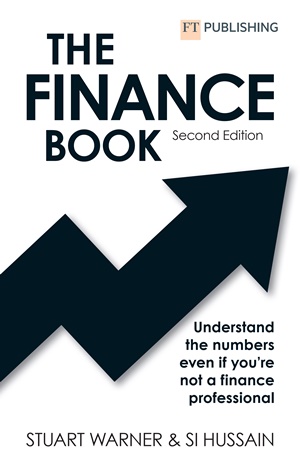 New book, The Finance Book offers a practical toolkit for non-finance professionals to understand the language of finance from a business perspective. Authors Stuart Warner and Saieem Hussain tell you what you need to know to quickly get up to speed with core finance concepts.
New book, The Finance Book offers a practical toolkit for non-finance professionals to understand the language of finance from a business perspective. Authors Stuart Warner and Saieem Hussain tell you what you need to know to quickly get up to speed with core finance concepts.
In the following article Warner and Hussain have put together some tips for SME Today readers to help you determine the health status of your business. SME owners and managers wear many hats including operations, sales/marketing, supply chain management, human resources management and IT amongst others. Finance is one of the disciplines that often loses priority amongst a barrage of competing demands.

A financial focus, however, is often the differentiator between the most successful businesses and the rest. Here are the five questions you should ask yourself to determine if your company is financially healthy.
1) Is your business profitable?
Do you know your real profit? Many SMEs focus on ‘gross’ profit i.e. profit after direct costs. However, indirect costs (or overheads) need to be assessed before ‘net’ profit (after both direct and indirect costs) can be calculated.
Although some overheads are readily known and understood (such as salaries and rent), other overheads are less high profile. For example, ‘depreciation’ (an accounting charge which spreads the cost of capital expenditure, on items such as equipment, over its life) as well as bank interest charges and corporate tax charges should also be taken into account. Only when all costs are understood, can a business know if it is actually profitable or not.
Understanding costs is also important for setting prices. It is not uncommon for SMEs to set prices too low and overestimate profitably due to an underassessment of overheads.
2) Is your business cash positive?
A profitable business is not necessarily the same as a cash positive business. If your business maintains stocks of goods and offers credit terms to customers, there is likely to be a gap between cash flowing out of the business (paying for stocks and other expenses) and cash flowing into the business (from sales). This is called the liquidity gap or working capital cycle. Even service based businesses which do not carry stock (such as a consultancy),
face a liquidity gap as there is often an period of time between starting work on a client project and raising an invoice (termed work-in-progress).
To some extent the time lag between making a sale and collecting cash from the sale can be mitigated by the credit terms received from suppliers, however, for many businesses a gap will still remain, which needs to be financed.
3) Is funding secured?
As a business grows the finance required to maintain the working capital cycle will also grow. A cash positive business may be able to self-finance its own growth, however, most businesses will need external finance to grow. The business may also require capital funding for new assets such as machinery and office furniture.
Debt finance can be a more accessible, flexible and cost effective form of finance than equity.
If the business is seasonal then a flexible form of finance, such as an overdraft, for short term working capital fluctuations, is often most cost effective, as the business only pays interest on finance when it is needed.
4) Does your business generate a return on its investments?
A business is only as successful as the investments it makes, whether in new assets, development projects, a marketing campaign or people. Each investment should be carefully analysed to ensure it generates a positive ROI (return on investment) above the company’s cost of finance.
There are a number of tried and tested investment appraisal techniques which use discounted cashflows (for long term projects) and account for the cost of finance.
5) Does your business produce good quality financial information?
Good quality financial information is critical to making successful decisions on all aspects of a business, whether setting prices, negotiating costs with suppliers, rewarding employees or making capital investments.
A company needs a robust financial system which captures all the activities of the business. A skilled finance team should be able to extract data from the system and turn it into meaningful and useful information. Regular financial reports should include a range of KPIs (key performance indicators) which measure the financial health of the business and provide early warning signals so proactive action can be taken.
About the authors
Stuart Warner and Si Hussain are experts in financial training and consulting, and are the co-authors
of The Finance Book: Understand the numbers even if you’re not a finance professional.



